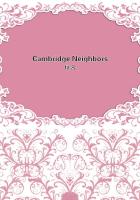It will be followed by a second, which bears the character of a negation of the negation and hence of a restoration of 'individual property', but in a higher form, based on the common ownership of land and of the instruments of labour. Herr Marx calls this new 'individual property' also 'social property', and in this there appears the Hegelian higher unity, in which the contradiction is supposed to be sublated, that is to say, in the Hegelian verbal jugglery, both overcome and preserved... According to this, the expropriation of the expropriators is, as it were, the automatic result of historical reality in its materially external relations... It would be difficult to convince a sensible man of the necessity of the common ownership of land and capital, on the basis of credence in Hegelian wordjuggling such as the negation of the negation {D. K. G. 502-03}... The nebulous hybrids of Marx's conceptions will not however appear strange to anyone who realises what nonsense can be concocted with Hegelian dialectics as the scientific basis, or rather what nonsense must necessarily spring from it. For the benefit of the reader who is not familiar with these artifices, it must be pointed out expressly that Hegel's first negation is the catechismal idea of the fall from grace and his second is that of a higher unity leading to redemption. The logic of facts can hardly be based on this nonsensical analogy borrowed from the religious sphere {504} ... Herr Marx remains cheerfully in the nebulous world of his property which is at once both individual and social and leaves it to his adepts to solve for themselves this profound dialectical enigma" {505}
Thus far Herr Dühring.
So Marx has no other way of proving the necessity of the social revolution, of establishing the common ownership of land and of the means of production produced by labour, except by citing the Hegelian negation of the negation; and because he bases his socialist theory on these nonsensical analogies borrowed from religion, he arrives at the result that in the society of the future there will be dominant an ownership at once both individual and social, as Hegelian higher unity of the sublated contradiction.
But let the negation of the negation rest for the moment and let us have a look at the "ownership" which is "at once both individual and social". Herr Dühring characterises this as a "nebulous world", and curiously enough he is really right on this point. Unfortunately, however, it is not Marx but again Herr Dühring himself who is in this nebulous world. Just as his dexterity in handling the Hegelian method of "delirious raving" {D. Ph. 227, 449} enabled him without any difficulty to determine what the still unfinished volumes of Capital are sure to contain, so here, too, without any great effort he can put Marx right àla Hegel, by imputing to him the higher unity of a property, of which there is not a word in Marx.
Marx says: "It is the negation of negation. This re-establishes individual property, but on the basis of the acquisitions of the capitalist era, i.e., on co-operation of free workers and their possession in common of the land and of the means of production produced by labour. The transformation of scattered private property, arising from individual labour, into capitalist private property is, naturally, a process, incomparably more protracted, arduous, and difficult, than the transformation of capitalistic private property, already practically resting on socialised production, into socialised property." [K. Marx, Das Kapital , p. 793.] That is all. The state of things brought about by the expropriation of the expropriators is therefore characterised as the re-establishment of individual property, but on the basis of the social ownership of the land and of the means of production produced by labour itself. To anyone who understands plain talk this means that social ownership extends to the land and the other means of production, and individual ownership to the products, that is, the articles of consumption.
And in order to make the matter comprehensible even to children of six, Marx assumes on page 56 "a community of free individuals, carrying on their work with the means of production in common, in which the labour-power of all the different individuals is consciously applied as the combined labour-power of the community", that is, a society organised on a socialist basis; and he continues: "The total product of our community is a social product. One portion serves as fresh means of production and remains social. But another portion is consumed by the members as means of subsistence. A distribution of this portion amongst them is consequently necessary ." And surely that is clear enough even for Herr Dühring, in spite of his having Hegel on his brain.
The property which is at once both individual and social, this confusing hybrid, this nonsense which necessarily springs from Hegelian dialectics, this nebulous world, this profound dialectical enigma, which Marx leaves his adepts to solve for themselves -- is yet another free creation and imagination on the part of Herr Dühring. Marx, as an alleged Hegelian, is obliged to produce a real higher unity, as the outcome of the negation of the negation, and as Marx does not do this to Herr Dühring's taste, the latter has to fall again into his higher and nobler style, and in the interests of complete truth impute to Marx things which are the products of Herr Dühring's own manufacture. A man who is totally incapable of quoting correctly, even by way of exception, may well become morally indignant at the "Chinese erudition" {D. K. G. 506} of other people, who always quote correctly, but precisely by doing this "inadequately conceal their lack of insight into the totality of ideas of the various writers from whom they quote". Herr Dühring is right. Long live historical depiction in the grand style {556}!















